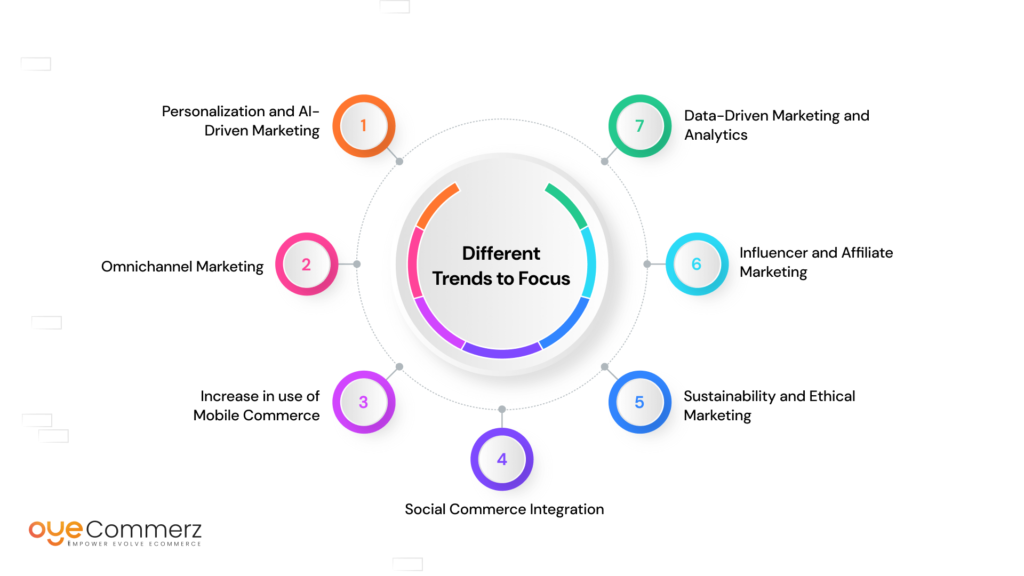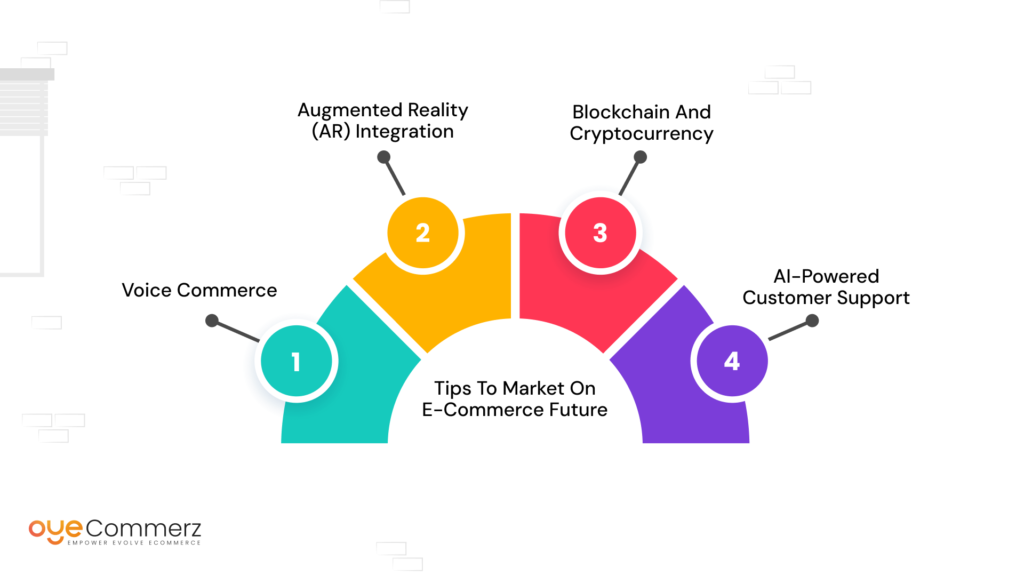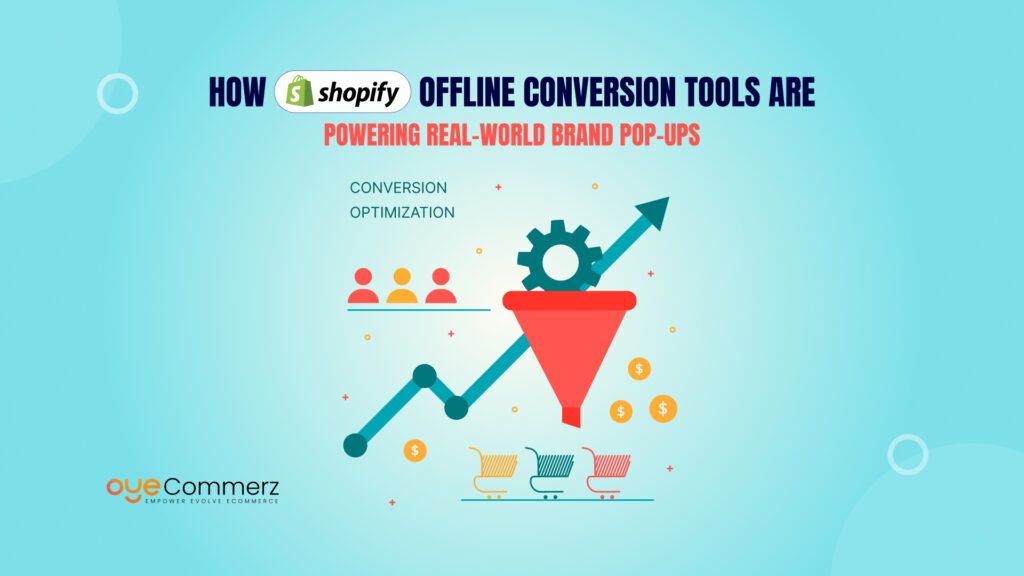In the ever-evolving landscape of e-commerce, companies are increasingly relying on platforms like Shopify to streamline their operations and drive success. However, the competitive nature of the online market means that standing out and securing success requires more than just having a Shopify store. As consumer preferences shift and new trends emerge, strategies that once worked may no longer be effective.
For Shopify merchants, staying ahead means continuously adapting to the latest trends, tools, and customer expectations. This is where partnering with a top-tier Shopify marketing company becomes essential. By leveraging the expertise of a specialized agency, businesses can navigate the changing tides of e-commerce and implement cutting-edge strategies that foster customer engagement and drive growth.
In this blog, we’ll explore the key trends that are shaping the future of Shopify marketing and how a Shopify marketing company can help you stay relevant and thrive in this dynamic environment.
Table of Contents
ToggleThe Changing Landscape of Shopify Marketing
- New trends in e-commerce marketing have been emerging constantly, and more recently customers have been demanding more focused and integrated ones. Most of the merchants’ needs are solved by Shopify – a universal software that provides tools and applications to fulfil these needs. However, even when using Shopify with its rich ecosystem, it is impossible to use traditional marketing strategies to increase sales, attract customers, and entice them to come back to the company.
- In today’s economy, Shopify marketers are not only marketing against already established businesses in specific industries, but they must also stand out against the entire global economy. As such, the online format of consumption has become apparent to consumers through mobile commerce, social media, and data science approaches to understanding consumer behaviour, e-commerce brands have to adapt to the modern market. As the industry develops it is crucial to stay in step with trends such as automation, omnichannel marketing, and adopting AI to your campaigns for your Shopify store.
Different Trends to Focus on for Shopify Marketing

With the growing impact of marketing strategies in Shopify, there are various trends that the business needs to track and monitor in a bid to capture and nurture the customers.
1. Personalization and AI-Driven Marketing
One of the most significant trends that affect Shopify marketing is known as personalization. Customer wants and anticipate the delivery of personalized service that best suits them. AI and machine learning will help Shopify merchants provide richer, targeted, content, products, and offers to the consumers. Using data on the users’ activity, their past purchases, and their demographic information, it is possible to design tailor-made experiences that will lead to a sale.
2. Omnichannel Marketing
Traditional methods of marketing on Shopify have greatly changed and are no longer a one-channel affair. Another marketing approach is the omnichannel strategy which implies using all types of platforms, such as social networks, applications, electronic mail, and offline options throughout the customer journey that are aligned with the brand’s identity. One of the essential aspects of social media selling integration with Shopify is that it allows the customers to have an uninterrupted buying experience with the brands even if they meet the brand on other channels such as Facebook, Instagram, Tiktok, or even in-person selling with POS systems.
3. Increase in use of Mobile Commerce
Mobile commerce remains to be a prominent force in Shopify sales trends as revealed in the following discussion. Mobile traffic generates over 70% of e-commerce, with a staggering 72.9% of total e-commerce sales coming from mobile commerce in 2023, and this figure is projected to rise to 73.9% by 2024 (Statista). However, this is where mobile commerce is not purely about design, Shopify merchants should and find more paths to recognizing Mobile First, like SMS marketing, mobile applications, and mobile-adaptive advertising.
4. Social Commerce Integration
Social media has taken on an increased level of significance in e-commerce and Shopify stores cannot underestimate them. Selling directly through social media platforms which is also referred to as social commerce has emerged to be influential in selling products. The recent collaboration of Shopify with Facebook Shops, Instagram Shopping, and TikTok has made it smooth to market and sell the product right in the feed.
5. Sustainability and Ethical Marketing
Today customers are becoming more conscious with the things they use and demand companies to be/environmentally friendly. For Shopify merchants making sustainability and ethical claims as part of your brand can truly speak to the hearts of your target audience. That is why focusing on such aspects as local and environmentally friendly products, environmentally friendly packaging, and being an ethical supplier creates consumers’ trust and loyalty.
6. Influencer and Affiliate Marketing
Influencer and affiliate marketing have become some of the indispensable parts of the Shopify marketing mix. Both macro and micro-influencers help to drive traffic to your Shopify store, which may be highly beneficial when done right. Influencers cultivate their audiences’ trust and offer recommendations that are often direct calls to purchase within a product category.
7. Data-Driven Marketing and Analytics
Hunches and instincts cannot carry the day anymore, especially in today’s information age. Nowadays, the primary idea is that Shopify merchants need to concentrate on data-driven marketing to make correct decisions. Sometimes, customers’ buying behavior or sales trends on the website can be analyzed directly through Shopify tools or other tools like Google Analytics and other such applications that would help businesses make intelligent decisions about their marketing strategies.
Tips to Market on E-Commerce Future in Shopify

Shopify marketing has shown that it will be changing in the future and businesses that lag on it are likely to be left behind. With the imminent launching of more technologies, there will be more marketing possibilities and, therefore, early marketing is essential.
1. Voice Commerce
The rapid increase of smart speakers and virtual assistants such as Amazon Alexa and Google Assistant will place voice commerce as an emerging segment of the e-commerce category. The use of voice search is still set to rise, particularly in the United States, and Shopify merchants should be ready for this here by making sure that their content including product listings and descriptions is voice-friendly.
2. Augmented Reality (AR) Integration
AR is also becoming popular in today’s e-commerce enabling customers to see how the products will fit in their space before buying the products. Shopify currently supports AR out of the box, and businesses can take advantage and give shoppers the immersive experience they desire. That is especially relevant for furniture, home decorations, and clothes when the ability to see the product in real life can help decrease the number of returns and increase satisfaction with the purchased items.
3. Blockchain and Cryptocurrency
Cryptocurrency and blockchain technology are the slow but sure entrant in e-commerce: they provide secure and authentic transactions. Blockchains should be adopted by using cryptocurrencies, payment gateways, and supply chain transparency for Shopify merchants together with using customer loyalty programs.
4. AI-Powered Customer Support
AI is not only applicable to current or upcoming marketing campaigns. With the continual increase in the expectations of consumers, firms will have no option other than to incorporate artificial intelligence-based customer service solutions such as chatbots and virtual assistants. Such tools can respond to customer inquiries and immediately address complaints and questions without further assistance from human personnel to enhance customer relations and reduce time consumption.
Elevate Your Shopify Marketing Game with OyeCommerz!
At OyeCommerz, we specialize in harnessing the latest trends to drive your e-commerce success. From personalized AI strategies to cutting-edge social commerce techniques, our expert team is here to help you stay ahead of the competition. Whether you’re looking to optimize your mobile experience or integrate the newest technologies, OyeCommerz Shopify Marketing company provides tailored solutions that fit your unique needs. Don’t let your Shopify store fall behind, contact us today and discover how we can elevate your marketing strategy for maximum impact and growth.
Contact to Migrate your Site to Shopify Now
Conclusion
To thrive and sustain growth in today’s competitive economic landscape, understanding both current and emerging trends in Shopify marketing is essential. In this article, we will delve into key trends crucial for the success of a Shopify store: AI-driven personalization, multi-channel strategies, and mobile commerce. Innovations like voice commerce, augmented reality, and artificial intelligence offer exciting opportunities to not only keep pace with competitors but also to establish your brand as a trendsetter.
By integrating these modern trends into your approach and leveraging specialized Shopify marketing services, you can enhance your marketing strategy, meet evolving consumer expectations, and position your brand for long-term success.




